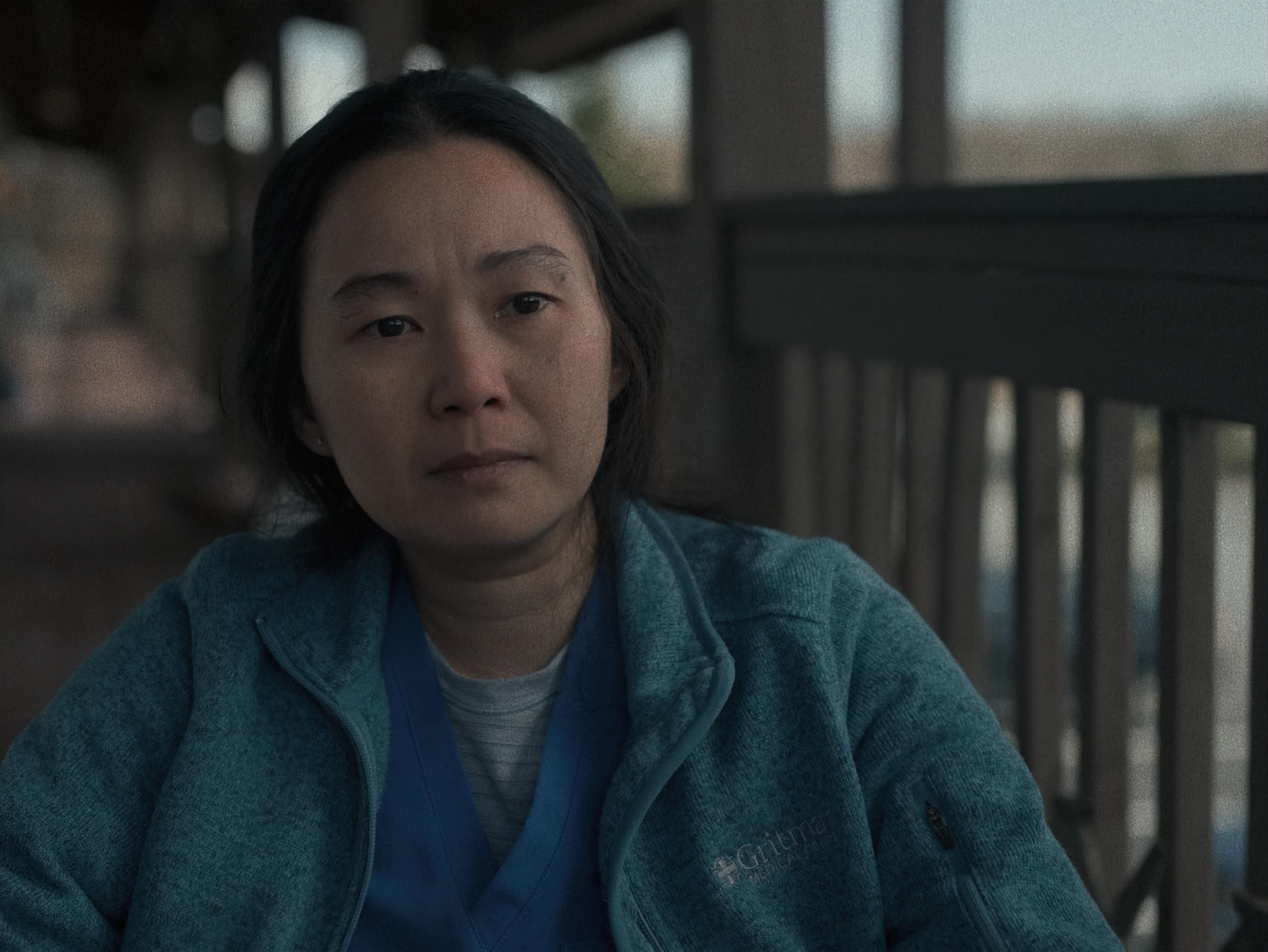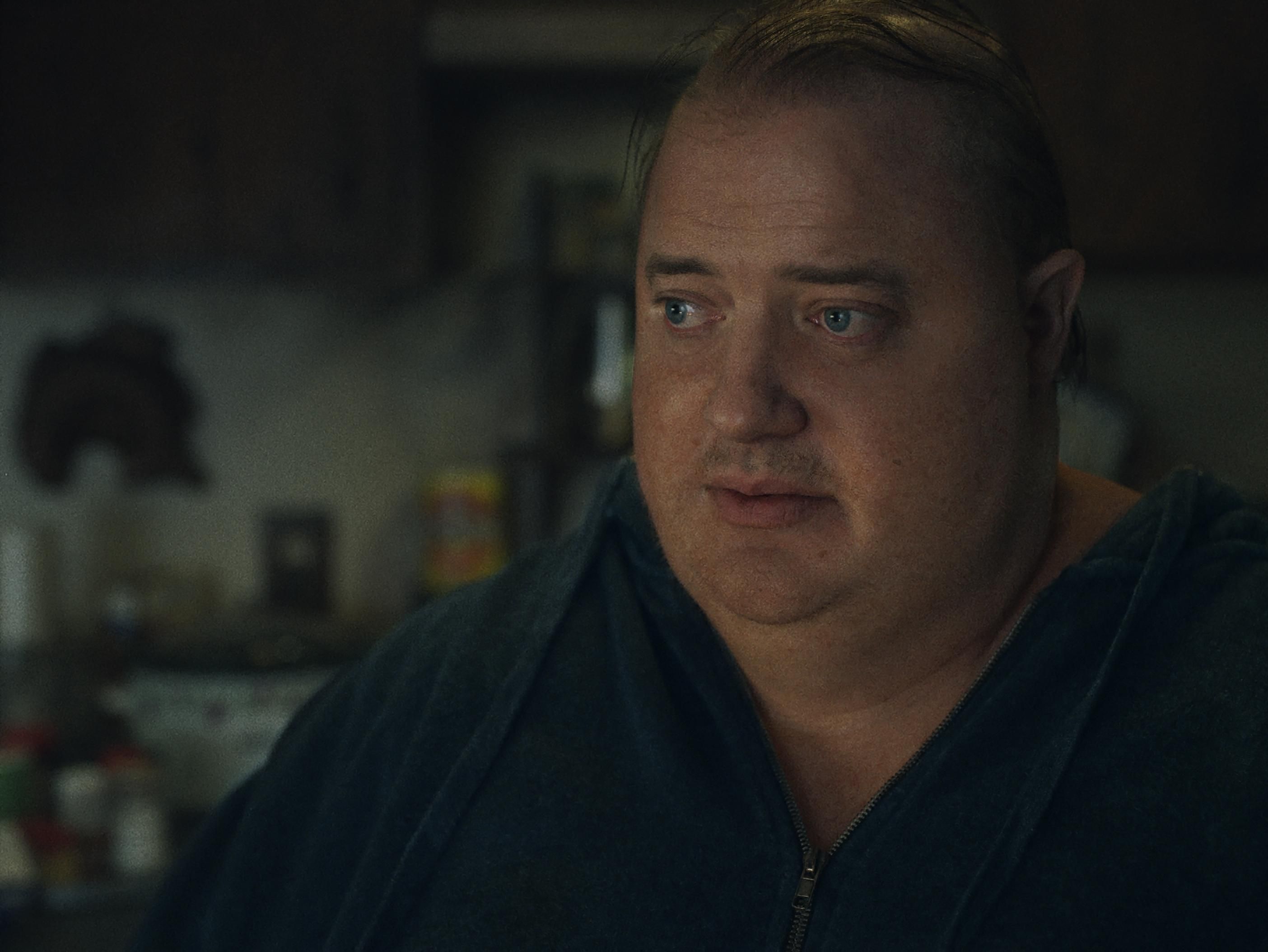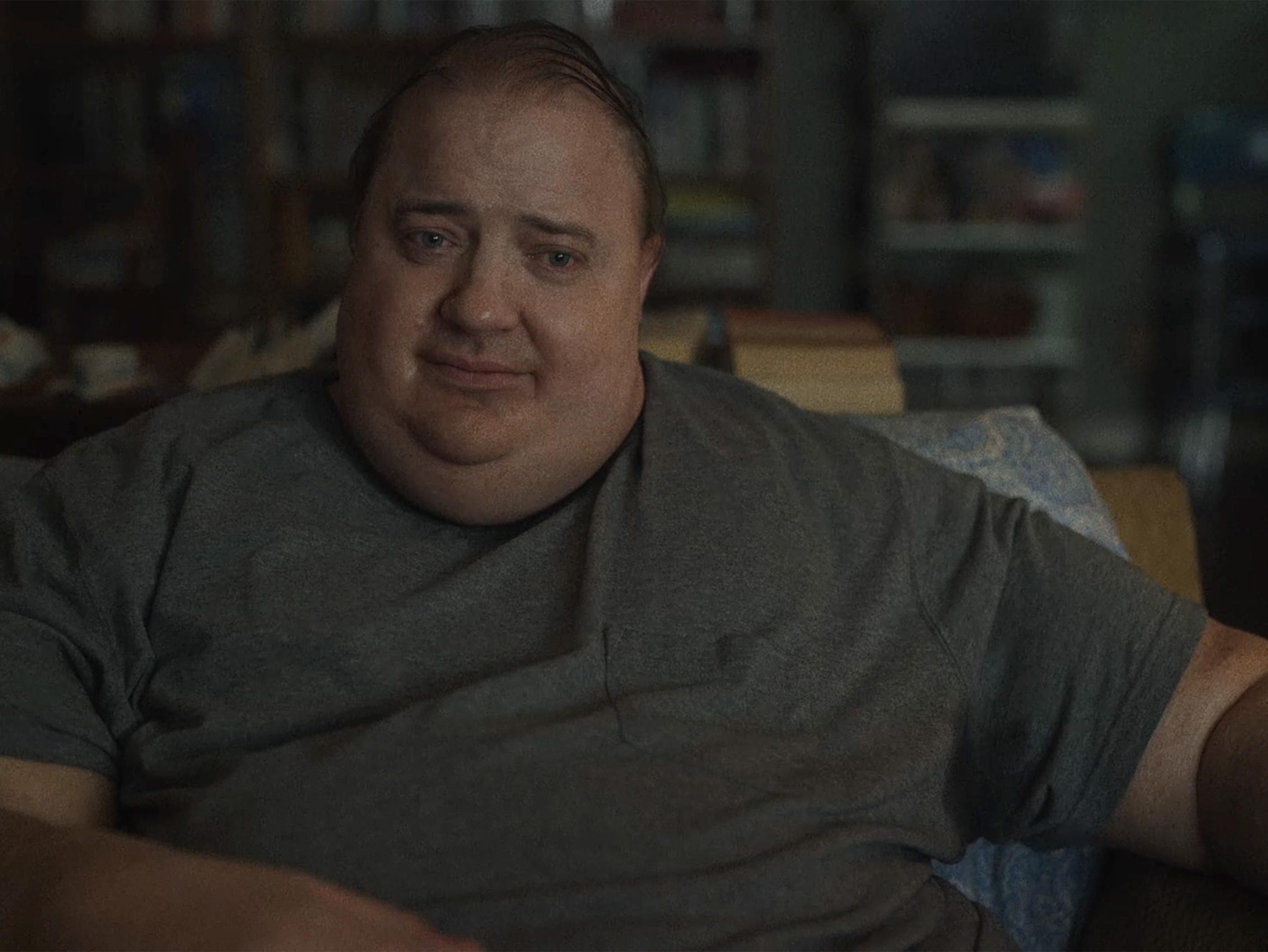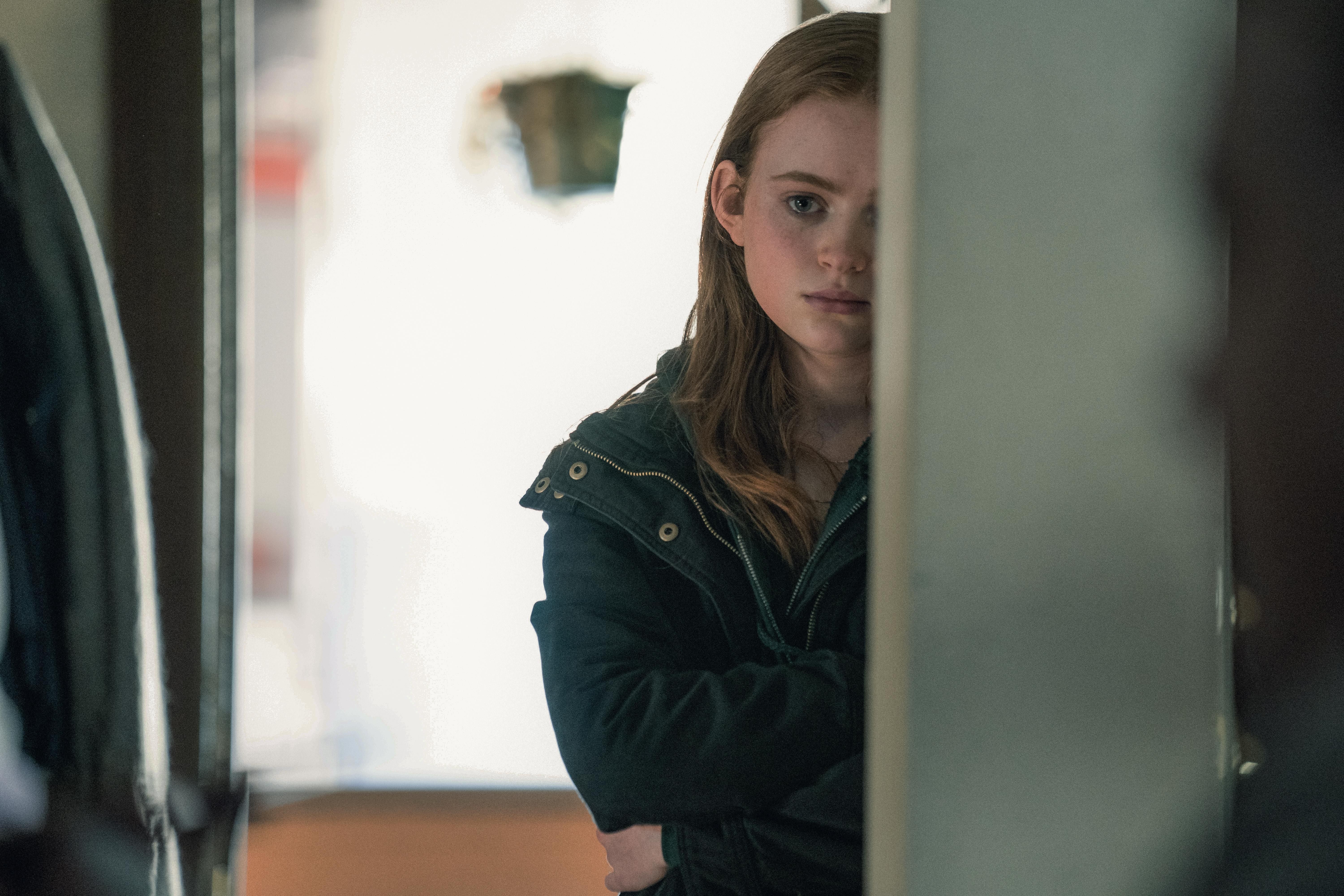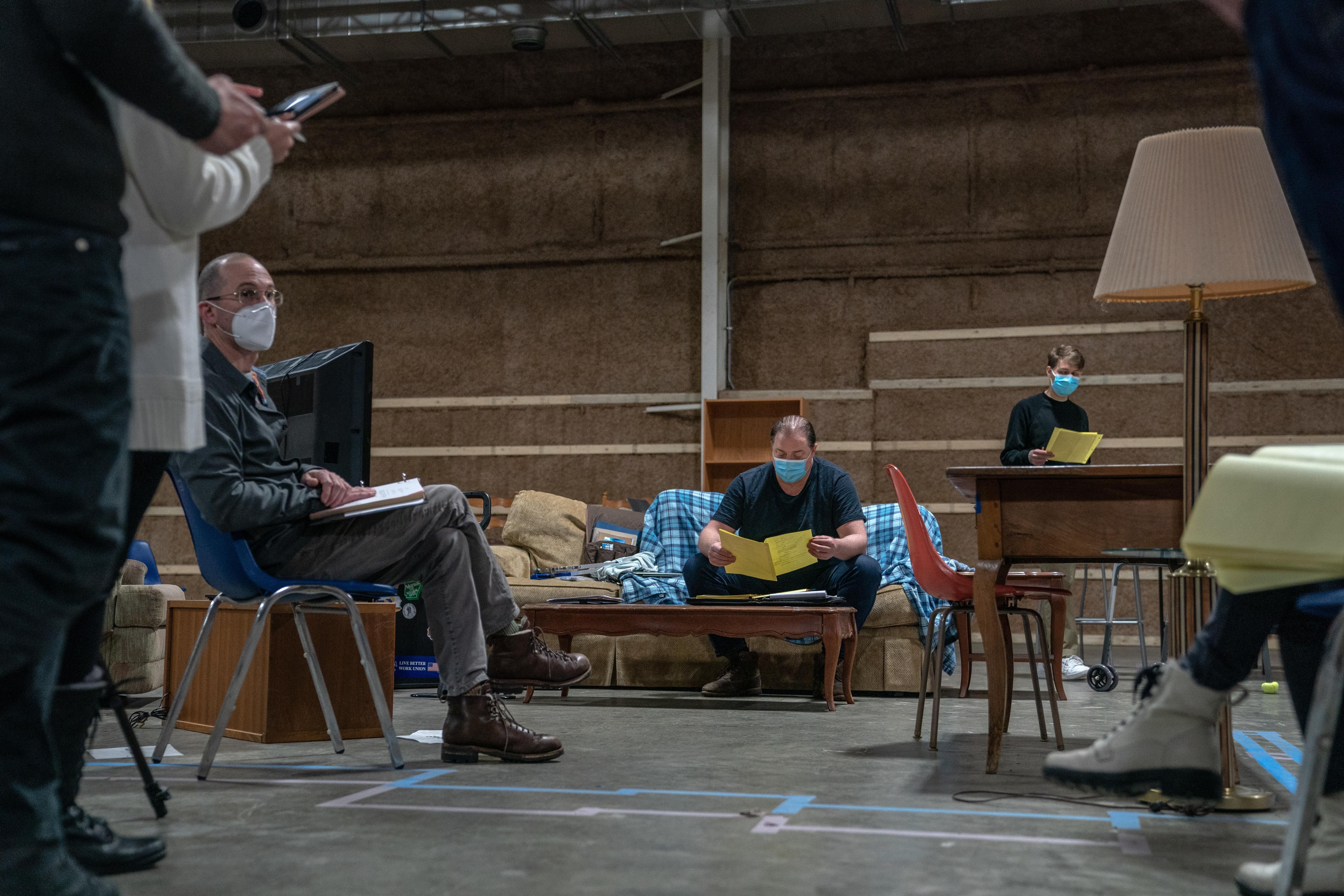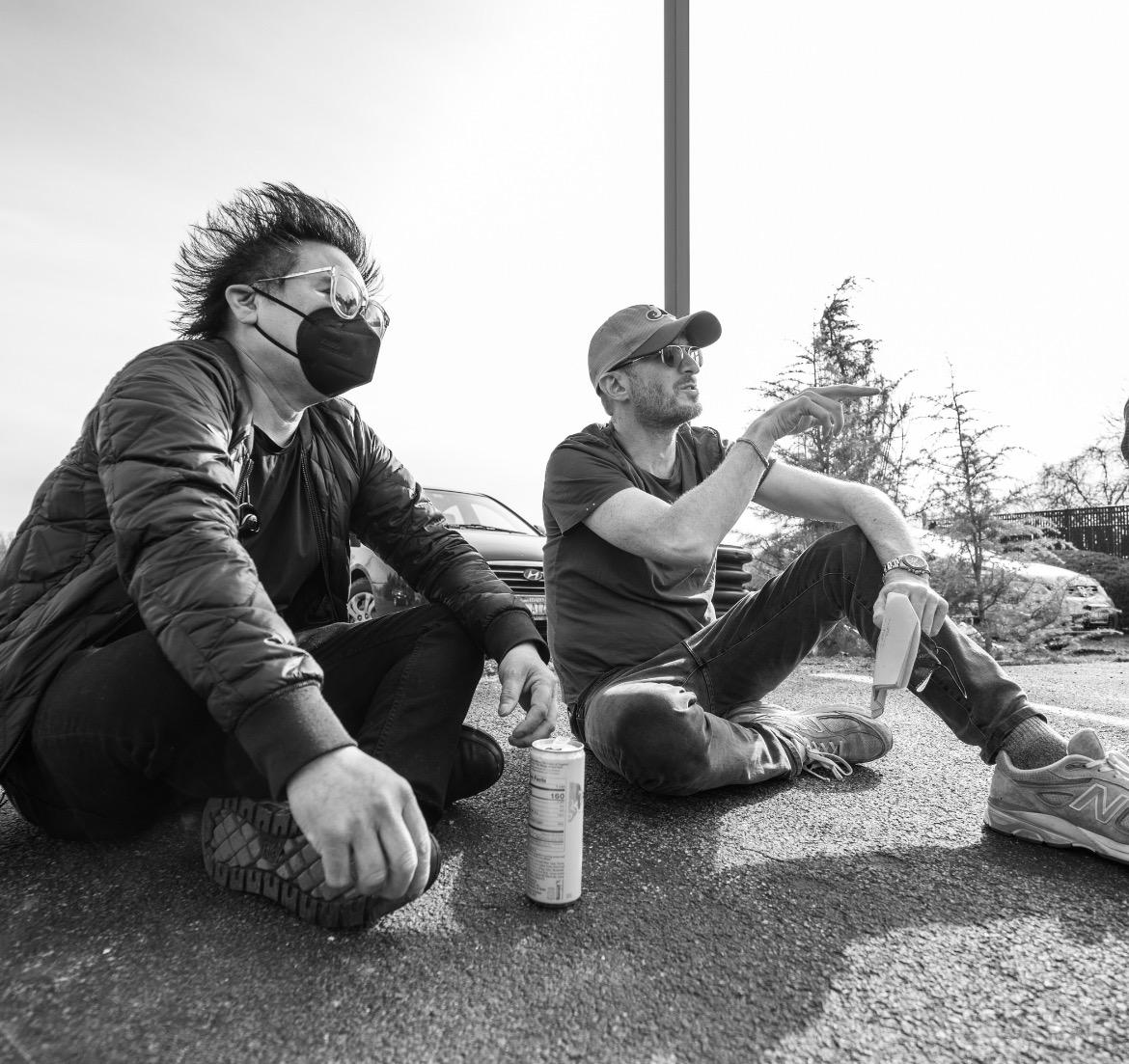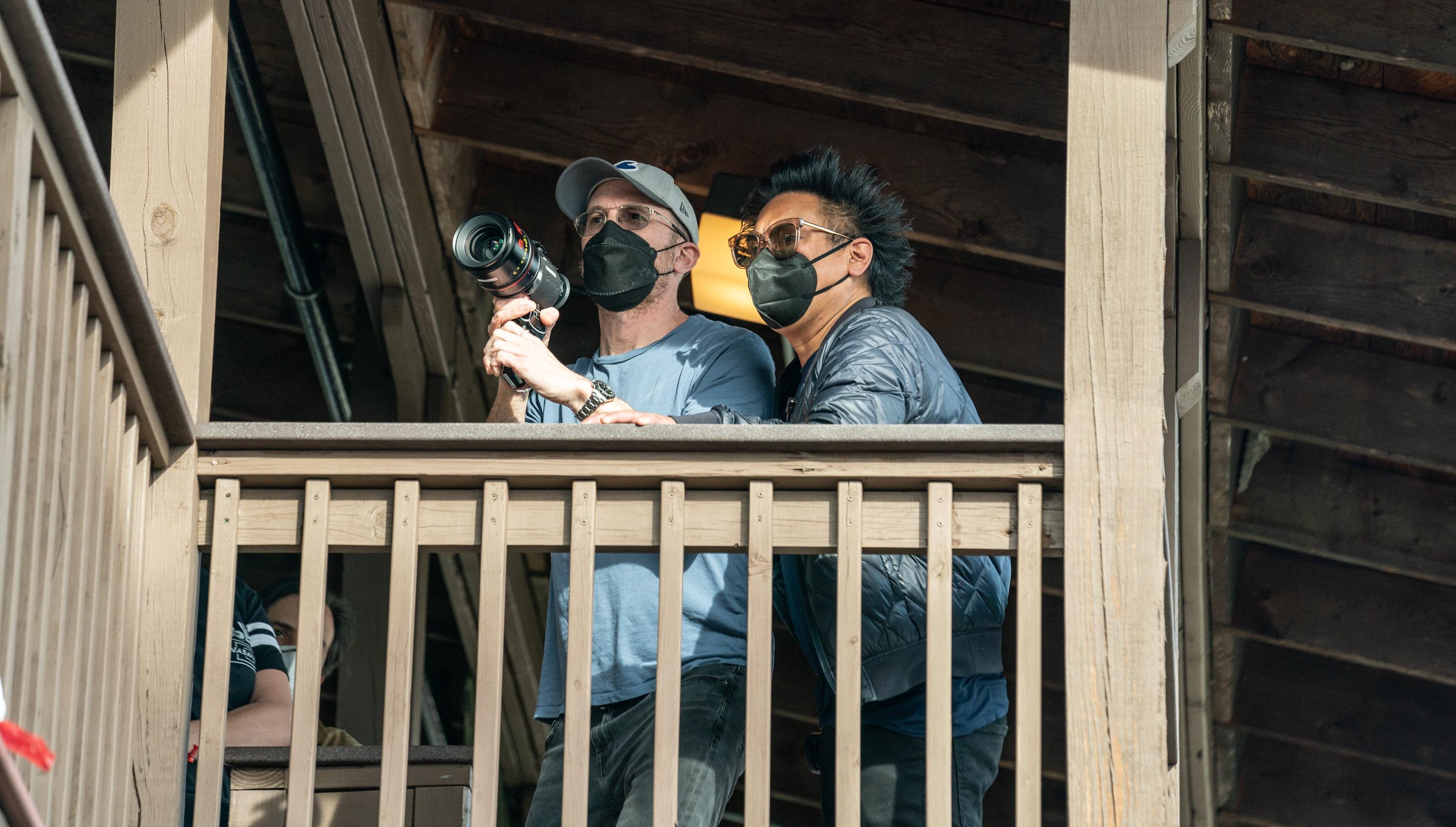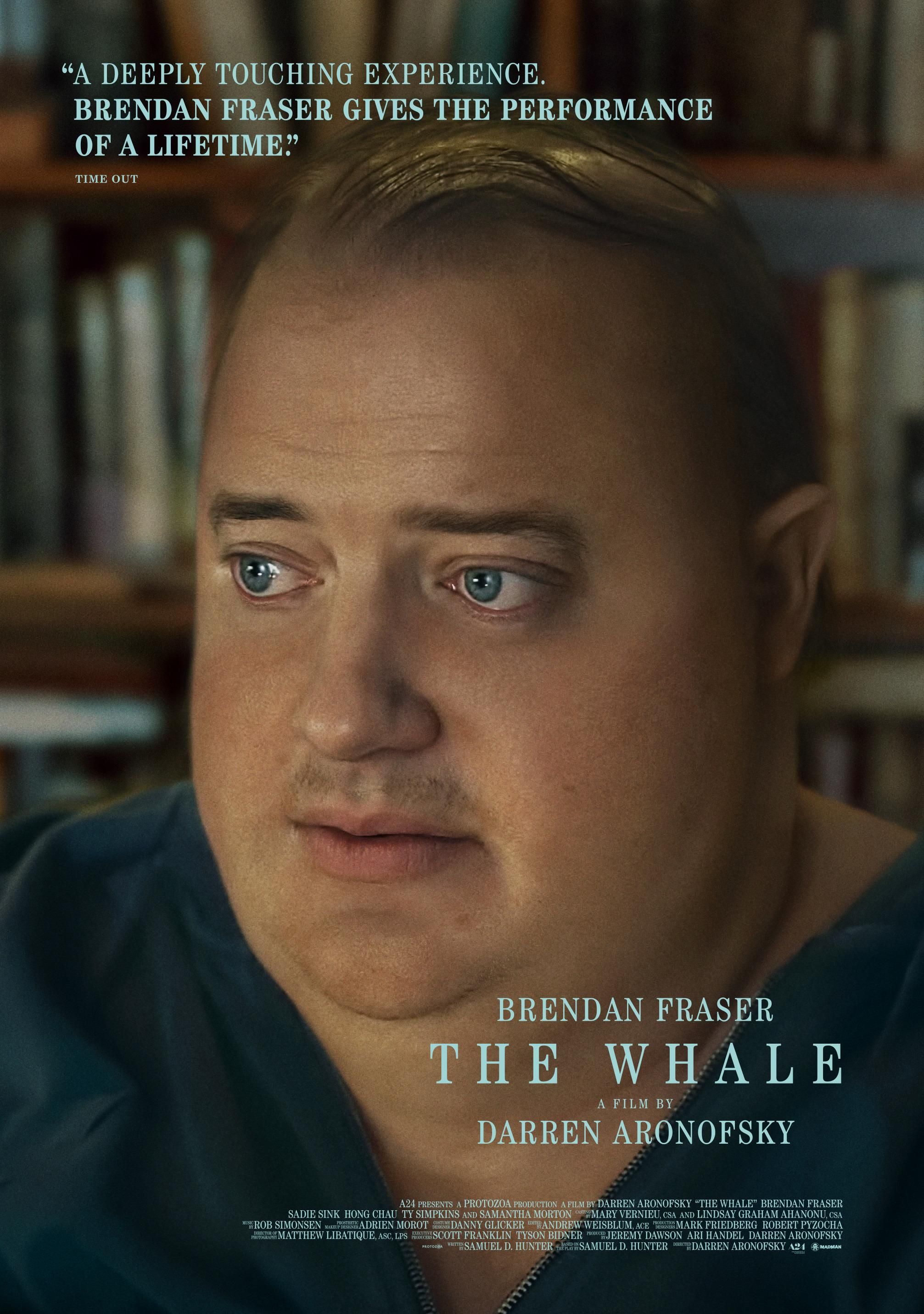Synopsis
Within the confines of his Idaho apartment, Charlie, an obese English teacher, delves into the art of writing with his students through the lens of an unseen webcam. Conscious of his appearance and plagued by health concerns, he chooses to disconnect from the outside world. Dedicated to his online classes, Charlie's solitude is occasionally interrupted by Liz, a caring nurse and his sole confidante. Despite her urgings to seek medical attention for his failing heart, she paradoxically supplies him with the comfort of unhealthy meals. They share a connection rooted in mutual understanding, even as Liz grapples with her own connection to a shared past.
The rhythm of Charlie's existence involves silent exchanges with a pizza delivery man and the unannounced visits of Thomas, a zealous missionary determined to guide Charlie toward salvation. Thomas challenges Charlie’s introspection, and their encounters stir unresolved emotions and religious tensions. Yet, it is the hope of reconnecting with Ellie, his estranged teenage daughter, that drives Charlie. Estranged for eight years after he left her mother for another man, Charlie now offers her a significant financial incentive to spend time with him, while covertly encouraging her own writing journey.
Ellie, harboring resentment, manipulates this reunion to her advantage. Charlie must come to terms with their fractured relationship while fulfilling her academic demands. As his health worsens, Liz helps Charlie maintain what little mobility he has left, even as she unveils painful truths that link her family to his. Liz's past intertwines with Charlie’s through her brother Alan, whose tragic demise led Charlie into despair and a dangerous spiral of overeating.
As Charlie grapples with his decisions and the ramifications on those he loves, an unexpected bond forms through hurtled confessions and a shared vulnerability. When Thomas confides about his own past transgressions, Ellie seizes the opportunity to record the revelation, setting off a chain reaction of personal reckonings. Charlie, faced with a poignant reunion with Ellie's mother, Mary, grapples with their shared history and the consequences of his departure.
Mary's visit marks a pivotal moment, breeding both confrontation and introspection as she and Charlie reassess their lives and choices. In the aftermath, Charlie experiences a profound emotional collapse, leading him to forsake conventional teaching norms through a radical display of sincerity directed at his students. This gesture unveils a new sense of liberation and serves as a catalyst for self-reflection among them.
In the film's climactic moments, Charlie seeks solace in honest expression. Ellie, initially defiant, engages with his vulnerability through words penned in her youth about the classic tale of "Moby-Dick." Her recitation becomes a turning point where anger resides, allowing for mutual recognition and fleeting joy. As Charlie approaches Ellie for the first time on his own, their tentative smiles encapsulate the unspoken understanding that emerges from shared truths. In this intimate moment, Charlie's journey transcends the binds of his physical state, embraced by an ethereal light that signifies an ultimate reconciliation beyond the confines of his struggles.
Argument
'The Whale' navigates the complexities of human emotion and relationships through the poignant tale of Charlie, a morbidly obese English teacher who both evades and craves human connection. At the heart of the narrative is Charlie's struggle with self-image, illustrated by his decision to teach online English courses with the webcam permanently off— a refusal to show the world his physical form, which he loathes. This choice underscores a broader theme of isolation, as Charlie confines himself to his Moscow, Idaho apartment, effectively cloistering himself from the outside world.
As the film opens in early 2016, we find Charlie at a crossroads, both literal and metaphorical. Despite claiming to be unable to afford medical care, he is paradoxically supported by Liz, a nurse and perhaps the closest semblance of friendship in his life. Liz embodies a dual role as both caregiver and enabler, bringing Charlie unhealthy sustenance yet urging medical intervention for his heart condition. Liz's contradictory actions reflect the complex nature of their friendship, a relationship steeped in care and frustration.
Enter Thomas, a missionary from New Life Church, whose presence amplifies the religious themes also woven throughout. Thomas's attempts to 'save' Charlie appear as a misguided mission, one that further complicates the web of relationships surrounding the protagonist. Despite Liz’s protests and her wounded history linked to the church's past—her brother Alan's tragic suicide sparked by religious guilt over his sexual orientation—Thomas continues to push his evangelical agenda. Here, we witness a fundamental clash of ideologies, with Charlie trapped in the middle, haunted by past decisions.
An essential turning point in the narrative comes with Charlie’s emotional plea to reconnect with his estranged daughter, Ellie, whom he abandoned eight years prior. Offering his life's savings as a bargaining chip, Charlie’s desperation is palpable. While it could be easy to dismiss his monetary proposition as crude, it's crucial to understand his larger motive. By offering Ellie his savings in exchange for her secret visits, Charlie is not merely motivated by guilt, but by a yearning for redemption, hoping to perhaps correct one past mistake.
The strained father-daughter relationship is further complicated by Ellie's rebellious nature. Her demand for Charlie to do her homework reflects a transactional dynamic rather than familial affection. Yet, there’s a glimmer of optimism, a belief within Charlie that Ellie, albeit sullen, provides a path to validation—to prove to himself that he can do "one thing right" in his life.
In a critical narrative juncture, viewers are invited into a day when Ellie slips crushed Ambien into Charlie's food. While this act can be viewed through countless interpretive lenses—anger, cruelty, revenge—it is a pivotal moment of vulnerability. Following Ellie’s action, an odd camaraderie develops between Charlie and Thomas where secrets unravel, guilt is exposed, and surprising admissions—like Thomas's theft from his youth group—unfold. Ellie’s recording of their interaction is a testament to her complex moral ambiguity, suggesting both conniving tendencies and a deeper, subconscious search for truth.
Charlie's wife, Mary, returns to the scene, summoned by Liz who remains deeply concerned about Charlie's declining health. Their confrontation is filled with mutual bitterness; past grievances spill uncontrolled as Mary disdains Ellie’s conduct while Charlie defends her potential. This confrontation encapsulates the latent tension that arises when unresolved pasts attempt to reconcile—Mary and Charlie's shared history pulls them back into old conflicts while pushing them towards potential resolution.
A particularly poignant sequence occurs with the pizza delivery man, Dan. For the first time, Dan catches sight of Charlie, his horrified reaction a mirror reflecting societal judgment. This incident sends Charlie into a spiraling binge-eating episode, a visceral display of his emotional and physical torment. This scene serves as a stark commentary on societal perceptions of obesity and the damaging impact of judgment.
As the narrative builds to a climax, Charlie's actions become increasingly drastic and symbolic. In a fit of disillusionment, he emails his students in a profanity-laden tirade, driving home the film's central argument about the duality of truth and deception. The ensuing decision to turn his webcam on for the first time—exposing his vulnerabilities to his students—marks a monumental shift, an assertion that raw honesty trumps academic pretensions.
The film's closing scenes present a rush towards reconciliation and understanding. As Liz consoles a rapidly deteriorating Charlie, Ellie arrives with a confrontation of her own. In a final act of humility and admiration, Charlie replaces her essay with an eighth-grade paper she wrote on "Moby-Dick," recognizing it as a piece of raw authenticity. As Ellie reads aloud, Charlie gathers strength, embodying a last stand—an attempt to bridge the vast emotional chasm of fatherhood, guilt, and acceptance. In an ethereal moment, he is enveloped by brilliant light, transcending his earthly confines into a state of grace.
'The Whale' presents a profound examination of human fragility, love, and redemption. Through Charlie’s journey, it argues that authenticity, no matter how flawed, carries more weight than the facades we construct. It presents a narrative where every relationship is a tangled web of compassion and conflict and where ultimately, the choice is to confront our burdens with honesty, seeking not just connection, but an understanding of our true selves.
Cast

Brendan Fraser
Charlie

Sadie Sink
Ellie

Ty Simpkins
Thomas

Hong Chau
Liz

Samantha Morton
Mary

Sathya Sridharan
Dan the Pizza Man

Jacey Sink
Young Ellie

Allison Altman
Young Mary

David Maire
Dan the Pizza Man's Shadow

Lance Oppenheim
Julian

Grace Perkins
Maddie

Wilhelm Schalaudek
Liam
Multimedia
